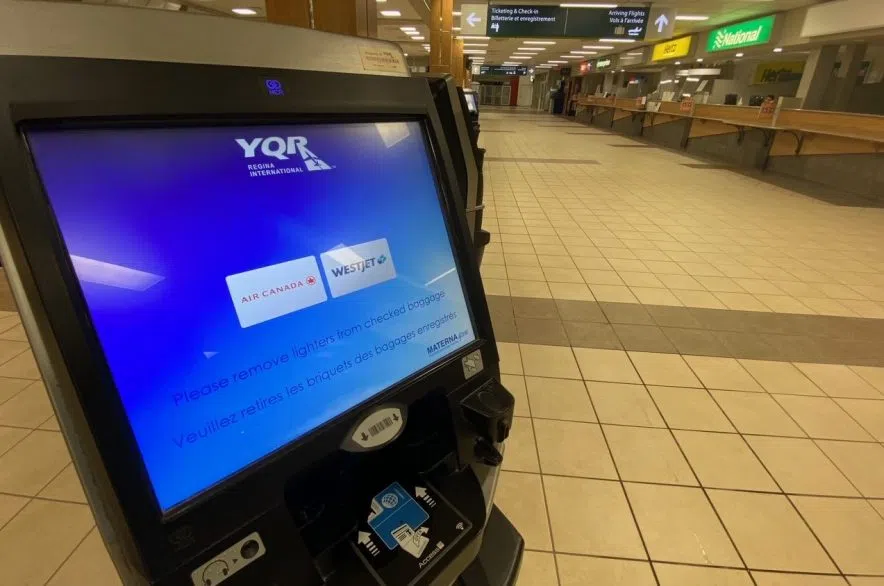The holiday season is here, and that means many will be taking flights to visit family or just soak up the sun.
James Bogusz, the CEO of the Regina Airport Authority, had some advice for travellers on how to make things easier at the airport.
“The advice that you hear from me every year has not changed: Make sure you come early when you’re travelling,” Bogusz told The Greg Morgan Morning Show. “We’re asking passengers to come two hours before your flight, even if you’re going to Calgary.”
Bogusz said delays at security for morning flights can reach up to 25 or 30 minutes during peak times of the year, so arriving early would decrease the stress passengers feel if the lineup is long.
The other suggestion Bogusz had for travellers was to pack properly, especially with their carry-ons. There are restrictions for liquids, gels and powders that result in someone having to move it to their checked bag or, at worst, leave an item behind.
“You (try to) bring a snowglobe through (security), for example; it’s got liquid in it,” Bogusz said. “(With) anything over 100 millilitres not clearly marked as being under that amount, you simply cannot bring it on in your carry-on bag.
“Same thing with powders. Let’s say you’ve got Grandma’s baking recipe secrets with you. You can’t bring more than about the size of a pop can; it’s about 350 millilitres.
“Those things can be checked, though. Many things are more liberal there.”
Terry Kaszas, the general manager of travel services for CAA Saskatchewan, said there have been some major improvements at airports as travel picks up in the wake of the COVID-19 pandemic.
That will come as a relief for people who dealt with significant issues last winter, with issues ranging from cancelled flights to lost luggage.
“I lost a bag, and within a day it was returned to me. A friend lost theirs, and it took a couple days but was shipped to the person,” Kaszas told The Evan Bray Show earlier this week.
“In general, I’m not hearing so much about that anymore; things have returned to normal. The connections, missed connections, delays – those are all returning to a good place right now, and things are really returning to normal.”
But before people pack their bags and jump on a plane, they should be aware of some of things – including travel advisories.
Kaszas said this year, there are a number of travel destinations the federal government recommends people steer clear of or proceed with caution.
Currently, there are 21 destinations that Canadians are urged to avoid travelling to at all costs. Those are Haiti, Myanmar, North Korea, Russia, Burkina Faso, Iraq, Belarus, Ukraine, the Central African Republic, Mali, Niger, South Sudan, Sudan, Afghanistan, Iran, Lebanon, Libya, Somalia, Syria, Venezuela, and Yemen.
There also are nine destinations where Canadians are advised to avoid non-essential travel. Those are the Democratic Republic of the Congo, Nigeria, Israel, the West Bank and the Gaza Strip, Burundi, Chad, Eritrea, Ethiopia, Mauritania, and Papua New Guinea.
Kaszas said some of the minor advisories listed for countries such as Mexico, France, Costa Rica, the United Kingdom, and the Bahamas won’t affect travel, and are mainly just safety precautions.
“There are always advisories out there for people to be a little bit cautious depending on where they travel,” said Kaszas.
Travelling can be stressful when dealing with security, delays and departure times, so Kaszas said passengers should be calm and collected when travelling.
“Just be prepared for possible delays, and just relax and try to be calm while this is all happening and if there is something that comes up,” said Kaszas.
–With files from 980 CJME’s Roman Hayter







